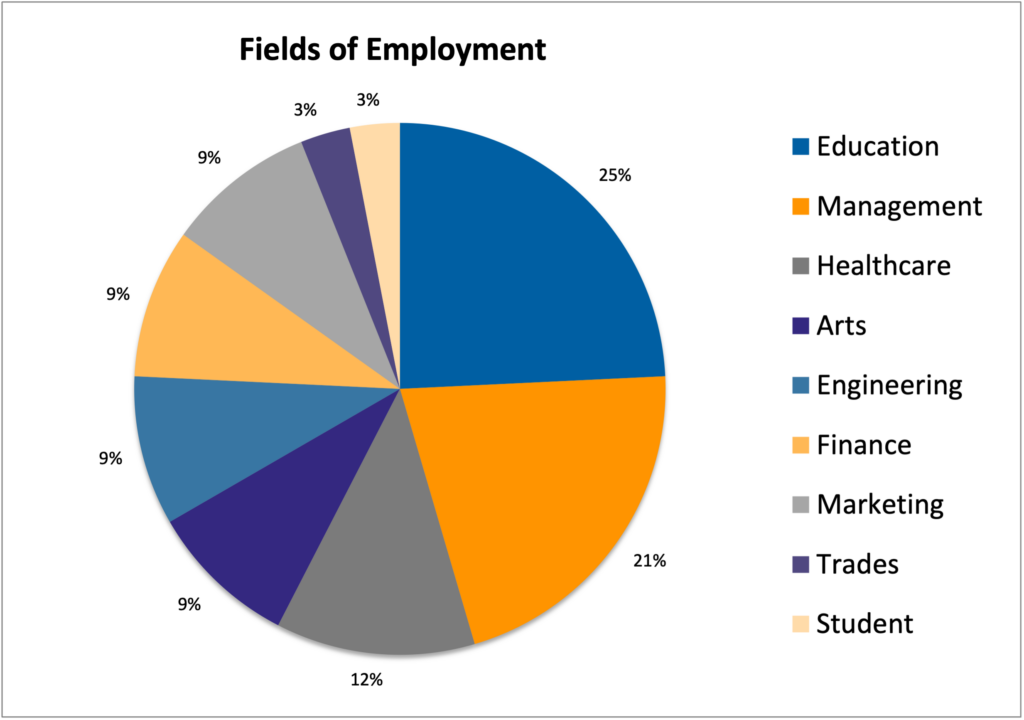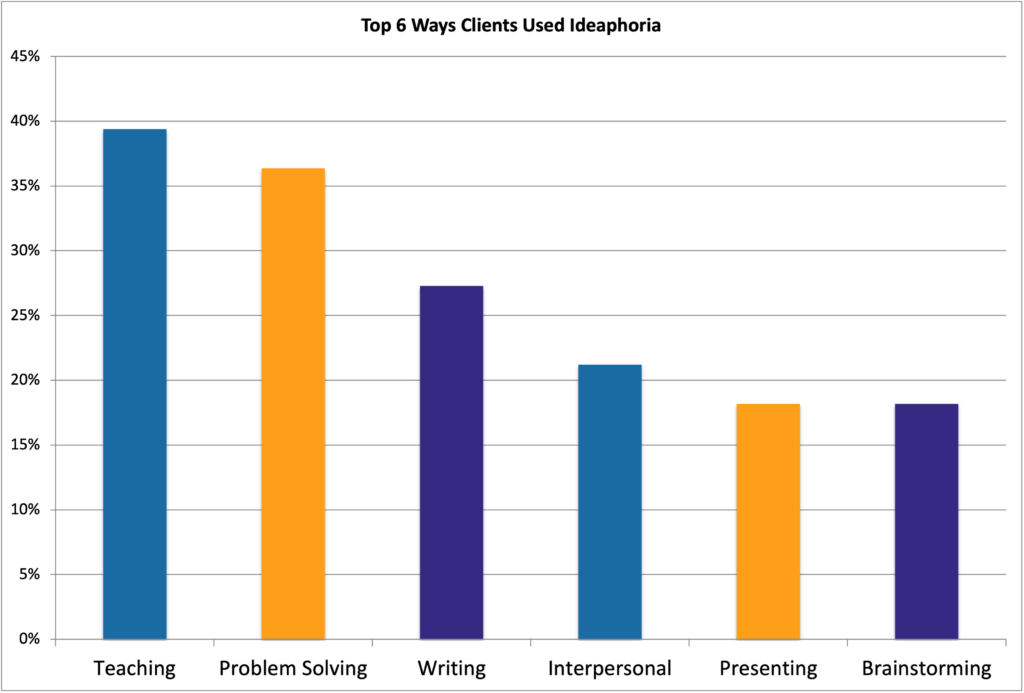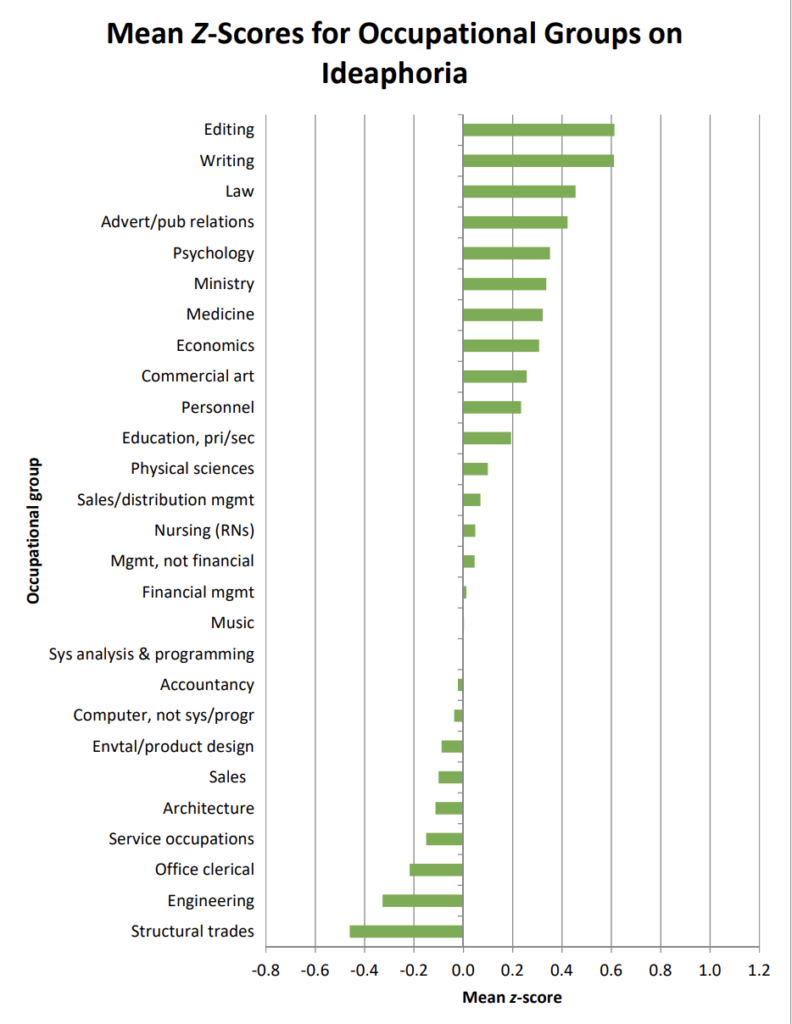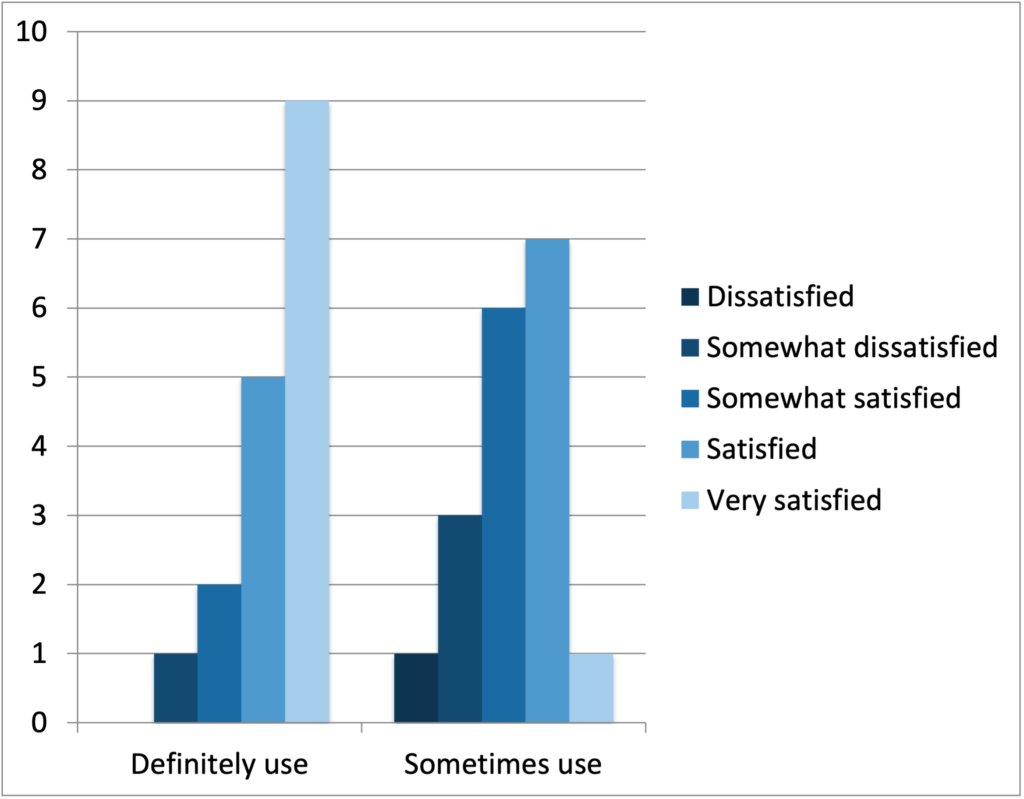Our examinees are often curious about how other people use their aptitudes. We set out to answer that question beginning with Ideaphoria, an aptitude that examinees often find especially intriguing.
The Ideaphoria test measures the volume and speed of someone’s ideas but not their quality. A high score in Ideaphoria indicates a rapid flow of ideas. A low score means a slower stream of ideas. Our research shows that people with high scores thrive in fields related to communication and innovation like marketing, advertising, teaching, and writing. These types of fields generally allow for brainstorming and ideating.
We polled former examinees through our newsletter and social media accounts to discover how they find an outlet for their many ideas. The answers showed an interesting mix of affection and some frustration towards this aptitude. That’s not too surprising—any aptitude can be an asset when it’s used and valued or a source of frustration when it’s ignored or minimized.
The High Ideaphoria Respondents
We heard from people working in a range of professions who scored high in Ideaphoria. All respondents with this aptitude said they “definitely” relate to its definition and feel like it reflects their lived experience. Across the board, the respondents reported that they feel they use this aptitude in their work either “definitely” or “sometimes.”

One of the notable findings from this survey is that some of the respondents work in fields like engineering, trades, and management. These generally correlate with low or average Ideaphoria scores, rather than high. Interestingly, many of these professionals (technical project manager, mechanical engineer, and plumber, for example), reported that their work uses Ideaphoria only “sometimes.” They also seem to have specifically sought out ways to make their jobs more Ideaphoria-friendly. One environmental engineer feels like working on policy and permitting uses Ideaphoria but their actual engineering tasks use it less. A physician who feels they only “sometimes” use Ideaphoria also teaches medical students. A realtor reported taking on a side job as a writer, specifically to use this aptitude more.
Of the technical professionals represented in this survey, it was the security systems engineer who seemed to feel the most confident that they regularly use their Ideaphoria in their work. Security systems engineering has been called a great option for those who “enjoy a challenge and love to learn.” This could explain where Ideaphoria comes into play—people with this aptitude often crave the variety of a constantly changing field.
Many of the other professionals in technical or STEM fields with fewer direct ways to use Ideaphoria reported that they use it most in problem-solving, trouble-shooting, or researching in their fields.
So, what are some of the best ways to use a rapid flow of ideas?
Roles that Use Ideas
There were some clear trends in how respondents reported they use this aptitude. We could distill six broad categories: teaching, problem-solving, writing, interpersonal (verbally communicating with others), presenting information, and brainstorming. These activities were cited by professionals across industries. Many of the respondents who said they use it to teach or train others were not professional educators but in fields like human resources, nursing, financial advising, psychology, and nonprofit management.
In the charts below you can see the top six ways clients feel they use their Ideaphoria and how that compares to different occupational groups JOCRF has studied. The careers with the highest scores in Ideaphoria (editing, writing, law, advertising/public relations/marketing, and psychology) are occupations where explaining, communicating, problem-solving, writing and brainstorming play fundamental roles.


The More You Use Your Ideas, the Better
The results from this survey were clear (and matched the findings of our 2018 study): Using your aptitudes means greater satisfaction in your career. Since everyone we included in these results scored high in Ideaphoria and felt they at least partially use it, we looked at satisfaction levels in relation to whether they “definitely” use it or only “sometimes” use it. Respondents who “definitely” use Ideaphoria in their careers clearly get more satisfaction out of their work. Still, even using it only “sometimes” can bring some satisfaction.

Rapid Flow of Ideas: Friend or Foe?
Many of our clients reported that learning about and understanding their high Ideaphoria was a pivotal experience for them:
“This concept has been a thread that has strung its way through my entire life and career, but a light was shined on it thanks to the Johnson O’Connor Foundation.” ~ Senior AV/IT/ Security Systems Engineer
“This is probably my favorite aptitude. It feels like the engine to how I think and helps me explore new paths and endeavors.” ~ Clinical Psychologist
“I believe it has been my saving grace in education and business…I’m called on frequently to find a solution and then to implement my out of the box ideas.” ~ Education Professional
“It’s been encouraging to be able to name it, to realize that it’s an actual aptitude, and to look for new ways and areas to use it.” ~ Homeschooling parent
However, high Ideaphoria can come with challenges. Some respondents raised interesting points about the tensions that can arise in the workplace, particularly when they have ideas to share that are ignored or attributed to someone else. (If that’s been your experience, try these tips for getting support for your ideas at work.) The clash between high and low Ideaphoria minds was brought up as a challenge in family dynamics. Many respondents mentioned the difficulty of quieting a busy mind.
Other Conclusions
Ideaphoria calls out for variety and frequent use. This is the case whether you’re in or out of the workplace. Many respondents were enthusiastic about hobbies that they pursue to challenge their idea flow and be more creative outside of work. Crafting, reading and writing, art, cooking, and planning events popped up more than once in this category.
We also heard from people like stay-at-home parents and retired professionals who were continuing to seek outlets for their ideas through volunteering or extracurriculars. It’s safe to say that finding ways to use your Ideaphoria is a lifelong endeavor.
The findings about teaching were also interesting. Although we’ve long associated education with Ideaphoria, it was fascinating to see that approach span so many industries. This suggests that no matter industry you’re in, taking on a teaching or training role could be a relatively easy way to use this aptitude more.
Want to know more about using high and low Ideaphoria? Download our Ideaphoria one sheet for tips and tricks!
















